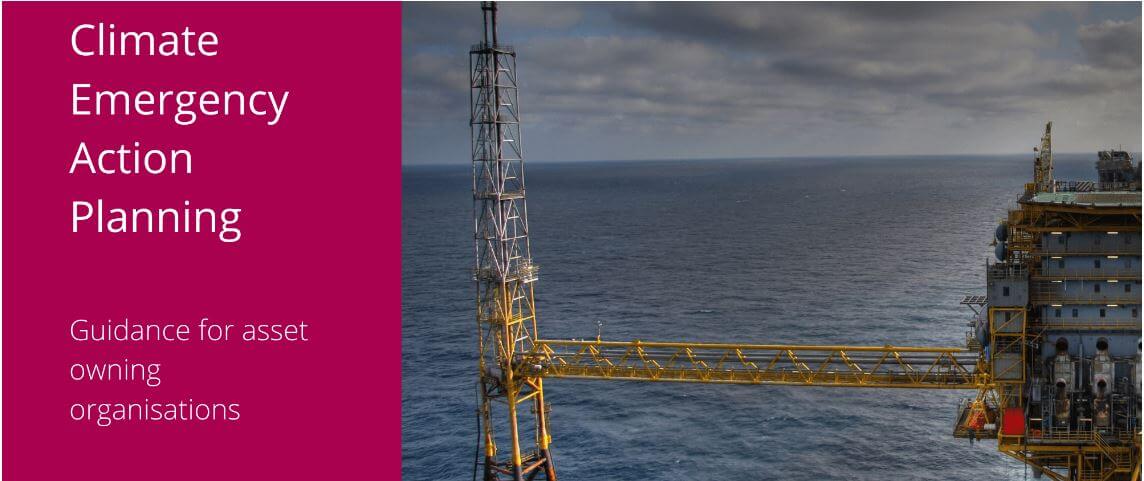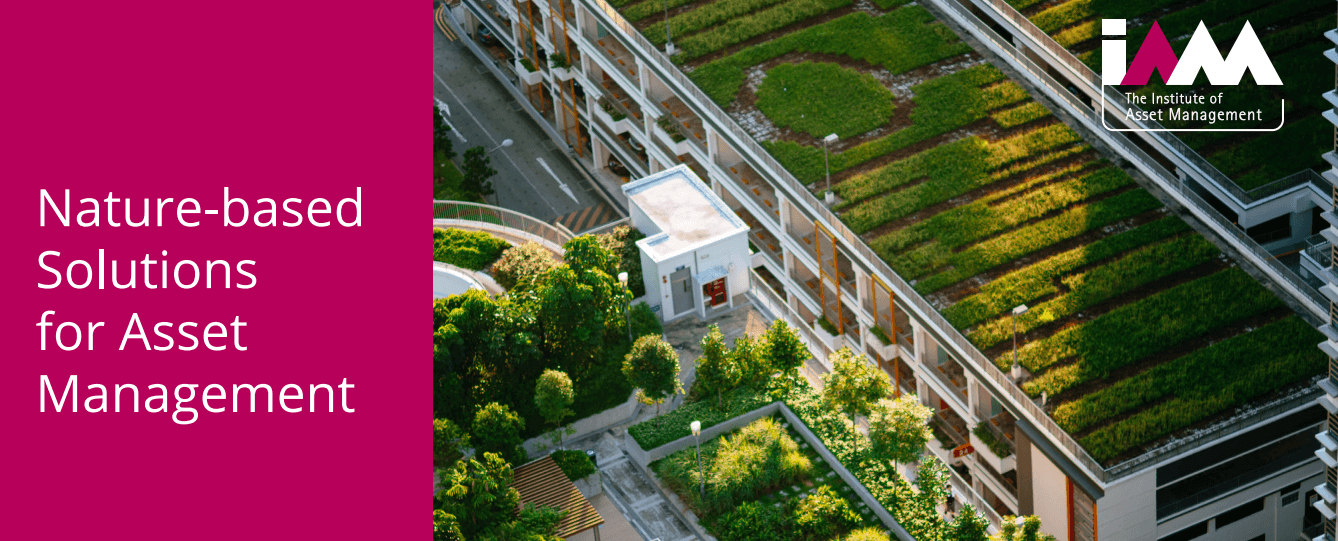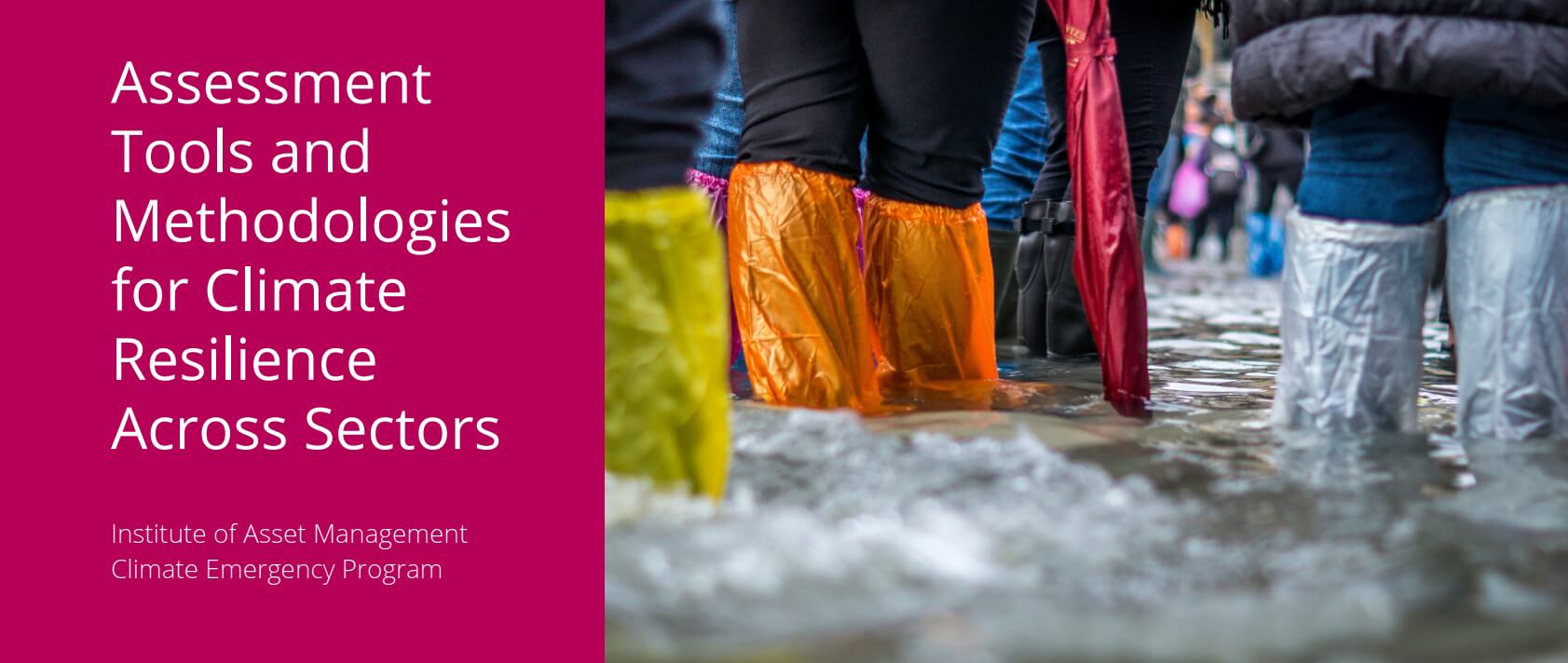Climate Emergency Group

The Climate Emergency is a critical topic for our Institute. The IAM is committed to support Members, governments and other decision-making bodies by leading action in our community and sharing good practice, with the aim of embedding an asset management approach in climate action plans.
The foundation of good asset management is the consideration of a long-term, whole-life, whole-system approach – avoiding functional, organisational and technical ‘boundaries’ that can lead to sub-optimal solutions. These principles should also provide the basis for addressing the Climate Emergency effectively and sustainably.
"At the IAM we are developing our approach to climate change and the climate emergency. Clearly, we need to collectively address the drivers of climate change, especially greenhouse gas emissions. We also need to address how we adapt and achieve resilience to those changes, and we recognize the need to do this in the context of sustainable development as described by the United Nations. What we value in society is key, and as values around the world change, asset management is adapting to reflect and embrace these values. If you would like to know more or wish to work with us, please do get in touch with us at IAM Climate Emergency Programme (ICEP)."
Ursula Bryan, President of the IAM

__________
Our purpose is to promote attention to the Climate Emergency across the IAM's activities and include our members in developing practical solutions for their organizations and to make these available more widely.
Our aims are:
- To instil a sense of urgency in, and facilitate a response from, the asset management community to address the climate emergency by bringing asset management thinking and techniques to help deliver change;
- To provide an international platform for knowledge sharing from a variety of disciplines to promote alignment across sectors (and with the IAM’s Resilience Programme);
- To share experiences and develop understanding and expertise, to better influence the delivery of sustainable solutions, eg Net Zero Carbon and the UN Sustainable Development Goals.
IAM Climate Emergency Programme (ICEP) will encourage active engagement from IAM council, committees and networks as well as engaging IAM members as much as possible.
__________
The IAM’s position on Climate Change and the Climate Emergency
- The IAM accepts the indisputable climate science that we are in the eye of a climate emergency, and this is resulting in sustainability and resilience issues across society. Urgent, diverse and widespread action is required to slow and stop the rate of change, and to adapt or contend with the changes already apparent.
- As well as implementing Climate Change Mitigation measures (e.g. reducing greenhouse gas emissions), we must introduce Climate Change Adaptation measures – making systems and infrastructure resilient to changes in the climate, and also bring about Environmental Sustainability by reducing detrimental environmental impacts (e.g. toxins) and using resources sustainably.
- We acknowledge that the size and complexity of the challenge is unprecedented in human history. For such a challenge, we recognise the need to include all professions and society as a whole, in a collaborative effort to find solutions to address the many different issues we are presented with.
- We must address both our detrimental impact on the planet and its subsequent impact on our society. Accountability to take action to reduce, stop and reverse adverse impacts on our environment, especially our climate, falls on governments, industries, corporate organisations, investors, and societal institutions. Addressing resilience of our food supplies, supply chains, towns, cities and infrastructure requires urgent and clear leadership from leaders of these organisations.
- Responsibility falls to our scientists, modellers, analysts, architects, engineers, developers and information technology professionals who have the skills, perceptions and inventiveness to find solutions that will enable resilience in the face of climate change and reduce our collective impacts on our planet and society. We also recognise the professional contributions required by financial, accounting, risk, human resources, operators, maintainers, project management, supply chain, facility management and governance experts to manage our built environments in ways that absorb the shocks and adapt to the changes presented as our environment changes.
- The successful mitigation of climate change is dependent on a whole system approach; a collaboration between sectors and industries. Asset management professionals have a pivotal role to play by using their skills and experience to support collaboration and increasingly effective decisions, to prioritise and select the best solutions for combating the climate emergency and protecting our most valuable asset, our ability to survive and thrive on planet Earth.
- Asset Management provides a framework by which to draw together the multitude of disciplines and expertise needed to address Climate Change and Climate Emergency within an integrated, pan-organisational model in order to prioritise and select the best solutions to reduce impact, adapt infrastructure and contribute to protecting our most valuable asset, our ability to survive and thrive on planet Earth.
- The IAM has established the Climate Emergency Programme (ICEP) in order to support our membership and drive forward the #RacetoZero and our response to the #ClimateEmergency.
__________

The Climate Emergency Group recently produced and published their White Paper - 'Climate Emergency Action Planning - Guidance for asset owning organisations'.
This Guidance document provides practical guidance to the asset management community on how to approach the climate emergency challenge and where to access additional information and knowledge.
View the Document - ICEP White Paper: Climate Emergency Action Planning
__________

The Climate Emergency Group White Paper – ‘Nature-Based Solutions for Asset Management’ aims to provide practical information and stimulate the adoption of Nature-based Solutions within the asset management community.
The paper includes a representative selection of case studies to showcase current solutions, tools and methodologies as evidence to demonstrate why these measures make good business sense and how they can be replicated and integrated into any asset management organization
View the Document - Nature-Based Solutions for Asset Management
__________

The Climate Emergency Group document – ‘Assessment Tools and Methodologies for Climate Resilience Across Sectors’ provides a high-level compendium of resources to support asset management professionals in integrating climate resilience into their practices to ensure operational continuity and long-term performance.
This paper focuses on the transportation, gas, and marine sectors, but the guidance can be adapted and applied in other sectors.
View the Document - Assessment Tools and Methodologies for Climate Resilience Across Sectors
__________
Useful Resources
There are many IAM and other resources that can help give you the tools and knowledge needed to account for climate change challenges in your organisation.
Do you want to be involved in our work?
As public projects and events become available, they will be listed below. You can register your interest at any time by emailing Office@theIAM.org and we will contact you with more information when projects are released.

